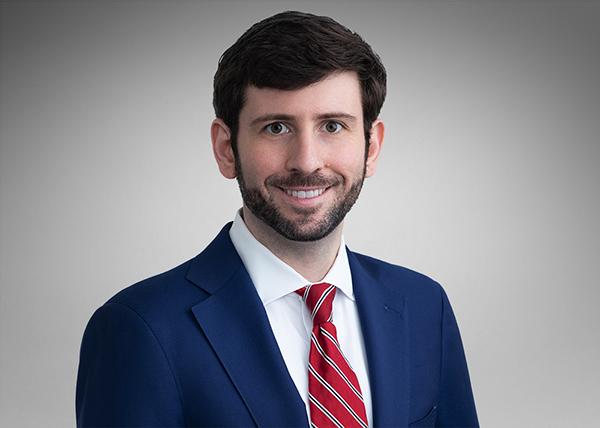On July 9, 2021, the Department of Health and Human Services (“HHS”) published a notice in the Federal Register announcing that it is withdrawing requests for proposals (“RFPs”) issued under the previous Administration regarding personal importation programs and insulin reimportation programs. Also on July 9, President Biden signed an Executive Order directing the Commissioner of the Food and Drug Administration (“FDA”) to work with states and Indian Tribes to facilitate the commercial importation of certain prescription drugs from Canada. This alert serves as an update to our September 30, 2020 alert discussing multiple Trump Administration initiatives aimed at facilitating prescription drug importation.
I. Background
Federal law generally restricts reimportation of prescription drugs and insulin-containing drugs to manufacturers. It also restricts importation of foreign-made prescription drugs for commercial use to manufacturers and entities authorized by manufacturers. One exception to both restrictions is section 804 of the Federal Food, Drug, and Cosmetic Act (“FDCA”). Section 804 provides for HHS to authorize the importation of certain prescription drugs by wholesalers or pharmacists (i.e., commercial importation of drugs from Canada under sections 804(b) through (h)) or by individuals for personal use (i.e., personal importation under section 804(j)). An additional exception to the reimportation restriction is section 801(d)(2). That section provides that the HHS Secretary may authorize the importation of a prescription drug or insulin-containing drug “if the drug is required for emergency medical care.”
II. Withdrawal of RFPs
On September 24, 2020, pursuant to former President Trump’s Executive Order “to support[] the goal of safe importation of prescription drugs,” HHS and FDA (the “Agencies”) issued RFPs to create new pathways for individuals to import prescription drugs and for insulin to be reimported by entities other than the manufacturer (the “Personal Importation RFP” and the “Insulin Reimportation RFP,” respectively). The Personal Importation RFP described a program to authorize Individual Waiver Importation Plans (“IWIPs”), through which individuals who obtained waivers under section 804(j)(2) could import certain prescription drugs from specified countries. The Insulin Reimportation RFP solicited proposals whereby insulin manufactured in the United States and exported to foreign countries could be reimported into the United States by a person other than the manufacturer under section 801(d). The Agencies subsequently posted revised versions of the RFPs and published a Federal Register notice about the revised RFPs on January 21, 2021.
In late 2020, the Pharmaceutical Research and Manufacturers of America (“PhRMA”) submitted two citizen petitions asking the Agencies to withdraw the RFPs on the grounds that they violated requirements under the FDCA and the Administrative Procedure Act (“APA”). PhRMA’s citizen petition relating to the Personal Importation RFP, filed on November 25, 2020, argued, among other things, that HHS failed to meet the threshold requirements of section 804 and that approval of any IWIP program would be arbitrary and capricious given the Agencies’ longstanding position on personal importation. PhRMA’s citizen petition relating to the Insulin Reimportation RFP, filed on December 17, 2020, argued, among other things, that the RFP ignored significant risks to patient safety posed by reimported insulin and failed to consider factors FDA itself had identified as relevant to determining whether a drug is “required for emergency medical care.”
Acting FDA Commissioner Janet Woodcock and HHS Secretary Xavier Becerra rescinded both RFPs, effective July 9, 2021. The notice of withdrawal stated that HHS was “not aware that any proposals were received” and that HHS “intends to consider alternatives to the RFPs.”
III. Commercial Importation of Prescription Drugs
The Biden Administration is moving forward with allowing the commercial importation of certain prescription drugs from Canada under section 804. On September 23, 2020, former Secretary Alex Azar purported to certify that implementation of the commercial importation provisions of the FDCA will not pose any additional risk to the public’s health and safety and will result in a significant reduction in the cost of covered products to the American consumer (the “Certification”). The next day, the Agencies issued a final rule to allow for the commercial importation of certain prescription drugs from Canada without the manufacturer’s authorization (the “Final Rule”). The Final Rule implements the section 804 commercial importation provisions through time-limited Section 804 Importation Programs (“SIPs”) authorized by FDA and managed by states (including territories) and Indian Tribes.
President Biden’s Executive Order instructs FDA to work with states and Indian Tribes to develop SIPs in accordance with section 804 and FDA’s implementing regulations. Other aspects of the expansive Executive Order are discussed in Covington’s alert issued last week.
A. SIP Applications Received to Date
Since the Final Rule was promulgated, at least two states—Florida and New Mexico—have submitted SIP applications to FDA for approval. PhRMA, the Partnership for Safe Medicines (“PSM”), and the Council for Affordable Health Coverage (“CAHC”) submitted citizen petitions asking that FDA not approve the Florida or New Mexico SIP applications. These citizen petitions argued, among other things, that importation under the applications posed significant safety risks and that the proposals failed to demonstrate that importation would result in a significant reduction in the cost to the American consumer. Additionally, citing arguments made in litigation in the U.S. District Court for the District of Columbia (discussed below), petitioners argued that no SIPs can be authorized until the Secretary makes a valid Certification and the Agencies promulgate a valid rule pursuant to section 804 of the FDCA.
Florida has been urging FDA to authorize its SIP. At a news conference on May 28, 2021, Florida Governor Ron DeSantis relayed that Florida’s SIP proposal had been “under review now for six months,” and the state had “been told that if it wasn’t denied last week”—i.e., by late May—“that we should assume it’s going to be approved.” The news conference was held at a warehouse newly constructed by Florida’s third-party, private logistics firm—LifeScience Logistics (“LSL”)—that is under contract to assist with operation and management of the SIP. LSL officials report that they are working with Methapharm Specialty Pharmaceuticals, which will act as the Foreign Seller that will purchase the eligible prescription drug directly from the manufacturer. On the same day that President Biden issued its Executive Order, Governor DeSantis also issued a press statement, announcing that “[w]ith the issuance of this new executive order directing the FDA to work with states, I expect no further delay in the approval of Florida’s plan to import safe and effective prescription drugs.”
B. Ongoing Litigation
On November 23, 2020, PhRMA, PSM, and CAHC filed a complaint in the U.S. District Court for the District of Columbia challenging the Certification and the Final Rule.* Plaintiffs’ complaint alleges that the Certification is contrary to section 804 and unsupported by the Record and that the Final Rule is unlawful on multiple grounds, including because it threatens patient safety. The government filed a motion to dismiss on May 28, 2021, arguing that plaintiffs lack standing and their claims are not ripe. Plaintiffs amended the complaint on July 2, 2021.
If you have any questions concerning the material discussed in this client alert, please contact the following members of our Food, Drugs, and Devices practice.
*Covington is counsel to PhRMA.
Back
Back








